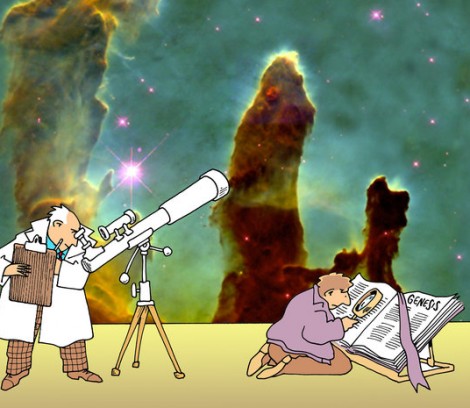
Who Is Seeking Whom?
Most of us grew up as Christians or Jews. We went to Mass, Sunday school or Hebrew School. We heard fantastic stories about Moses and Abraham, Peter, Paul and Jesus. At least in our early years, many of us wanted to “be like them,” to always love God and others.
Then we grew up, and all of those stories and our reaction to them seemed childish. We learned that Santa Claus and the Easter Bunny were bogus. Surely God is, too.
We may have also noticed that many adults don’t take religion seriously, so why should we? We may have learned in college that the world and all that is in it resulted from random natural selection, not from a seven-day creation spree by an invisible God. And we may have concluded that reason and faith are incompatible.
So what about now? Is our indifference or hostility to faith due to an intellectual commitment to the truth or to some vague notion that those beliefs, experiences and aspirations of childhood are childish? Or is it simply due to apathy and fecklessness, a satisfaction with our lives as they are, or the common notion that God is no longer needed?
I’ve recently finished reading the book, “Living with a Wild God: A Non-Believer’s Search for The Truth about Everything,” by Barbara Ehrenreich. It’s sort of an autobiography by a muckraking journalist who has a doctorate in cellular immunology but who, instead of pursuing a career in science, has had a life of research, advocacy and activism.
She is, perhaps, best known for her 2001 book, “Nickel and Dimed: On (Not) Getting By in America.” It chronicles her three-month experiment in trying to get by on minimum wage as a hotel maid, nursing-home aide, waitress and Wal-Mart clerk.
In “Living with a Wild God,” Ehrenreich writes of her early struggles with belief and her coming down on the side of non-belief. She thought of herself and still describes herself as an atheist. In fact, she went through a period of believing that nothing exists outside herself (solipsism).
Still, she had a kind of repeated “altered state of consciousness” as a youth, which she has trouble describing. Later, she would refer to it as “the Presence” or “emergent quality.” She doesn’t believe it was a manifestation of God, however.
“Since we have long since outgrown the easy answer – God – along with theism of any kind, we have to look for our who within what actually exists,” she writes.
She makes no rational arguments against belief, it should be noted. Like many commentators on religion, she simply begs the question, saying that we’ve “outgrown” God.
Although Ehrenreich rejects the “God of Religion,” she doesn’t reject the “Wholly Other revealed in mystical experiences,” though she can’t describe it. Although she has a scientific background, she’s ambivalent toward science itself. And she mostly ignores the intellectual giants who for centuries have given good reasons for belief.
The mind’s work, she writes, is “…to condense all the chaos and mystery of the world into a palpable Other or Others, not necessarily because we love it, and certainly not out of any intention to ‘worship it.’”
An obviously intelligent and astute observer of life, Ehrenreich writes all around God and seems to have a vague feeling that there’s more to reality than what we can test and measure. She intuits that someone or something exists outside the world as we know it, but she just can’t put her finger on it.
She can’t bring herself to accept the God of Judeo-Christianity, but she seems close.
Whatever that “presence” is, she writes, “…I have the impression, growing out of the experiences chronicled here, that it may be seeking us out.”
Ehrenreich had little experience with organized religion growing up and the experiences she did have were negative. As mentioned, most of us have a different experience, learning about Christianity or Judaism at a young age and eventually having to choose to accept or reject it, or we simply drifted away from it.
Even if we’re indifferent about that faith today, our sense of fairness and determination to do good undoubtedly comes from that source. And though we may not want to admit it to others or ourselves, we may have maintained a longing for God we haven’t been able to shake.
Though maintaining a healthy skepticism, we should ignore the juvenile notion that faith is juvenile and trudge on in our search for God, being open to our earliest instincts and the obvious ways in which God may be calling us. Ehrenreich and millions like her who haven’t yet been able to accept that call still seem to feel his/her presence, from which none of us can hide.
O where can I go from your spirit,
Or where can I flee from your face?
If I climb the heavens, you are there.
If I lie in the grave, you are there.
If I take the wings of the dawn
Or dwell at the sea’s furthest end,
Even there your hand would lead me;
Your right hand would hold me fast.
-Psalm 139 (Catholic Bibles)






